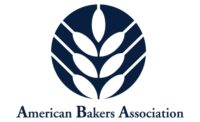During the 2016 International Baking Industry Exposition (IBIE), taking place from October 8–11 in Las Vegas, the American Bakers Association will offer a session on “The Future of Wholesale Baking with Marijuana,” presented by Jesse Burns, director of marketing, Sweet Grass Kitchen, Denver, a wholesale baker centered on the marijuana baking market. They provide a variety of baked marijuana “edibles” to Colorado dispensaries. Learn how they navigated evolving laws and formulations to be pioneers in this new and quickly growing part of the baking industry. The session will take place on Saturday, October 8, from 9:45–10:45 am.
This segment of baking presents significant opportunities for growth in states where medical and recreational marijuana use is permitted. Colorado, Alaska, Washington and Oregon have decriminalized marijuana, offering both medical and recreational use. Hawaii, California, Nevada, Arizona, New Mexico, Montana, Minnesota, Illinois, Michigan, New York, Vermont, New Hampshire, Maryland, New Jersey, Connecticut, Massachusetts, Delaware, Rhode Island and Maine have passed laws permitting medical marijuana.
In order to better understand this market, we reached out to Burns to provide a preview of this upcoming IBIE session.
Douglas J. Peckenpaugh: What are some of the subjects related to baking with marijuana that you hope to cover in your IBIE educational session?
Jesse Burns: The challenges of cannabis baking—supply chain, regulation and scalability! We will cover the history of Sweet Grass Kitchen, which will lead the conversation to where we are today—a small-batch bakery, faced with extensive regulation (akin to those of big pharma, not a bakery), that must operate on a state-by-state basis, and doesn’t have the blessing of the federal government. We like to say that while we are in the least-scalable industry out there, it’s never boring and definitely the coolest!
DJP: Reports indicate that edible marijuana product sales are outpacing traditional, inhalable forms. What are some of the most-popular edible marijuana products that you sell?
JB: We sell only cannabutter products, which are products made with cannabis-infused butter rather than hash oils, extracts and concentrates (solvent-based extractions). We specialize in baked goods for both the recreational and medical markets. Recreational cookies are some of our most-popular products, as are the seasonal pies we make throughout the year.
DJP: How do you determine use levels per serving for baked and other marijuana edibles?
JB: The State of Colorado has mandated that one recreational serving equals 10 mg of active tetrahydrocannabinol (THC). Most of our recreational products contain 10 mg. However, we were the first Colorado company to release a micro-serving product—the 2.5 mg per piece Buttermelts.
There are no regulations in the medical market. Dosage is related to individual tolerance and patient need as decided by the patient and their doctor. Our highest-milligram product on the medical side is a 500 mg cookie bundle.
DJP: Different strains of marijuana have varying degrees of potency. How do you adjust marijuana use levels to compensate for this variable?
JB: In short, we turn tetrahydrocannabinolic acid (THC-A) to THC during our butter infusion process. We can concentrate the butter as we need no matter the potency of the input strain.
DJP: Do any recognized organizations currently set voluntary guidelines for marijuana edibles?
JB: Sweet Grass Kitchen absolutely helps set these guidelines. We are a part of several industry groups that have recently banned candy in human and animal shapes, as well as producing edibles education cards for distribution in dispensaries across the state.
DJP: How do you anticipate the marijuana edibles market will change in the coming months and years?
JB: During the first few years of “hockey stick” industry growth, most edibles companies could get away with a “if you make it, they will come” mentality. The landscape is changing now—and changing very quickly. To be successful in 2017 and beyond, companies will be forced to “grow up” and to understand the true needs of their customers in order to make products that fulfill those needs.
IBIE offers a comprehensive educational program that includes over 90 expert-led sessions covering a wide range of issues and subjects central to the baking industry today. For complete details, visit www.ibie2016.com/agenda.





